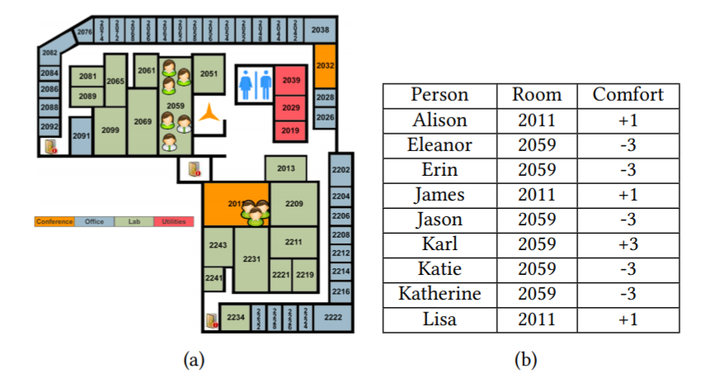
Abstract
Current buildings rely on predefined rules to control the temperature in rooms disregarding their residents’ thermal comfort. Multiple approaches have been presented in the literature to tackle this issue (e.g., by enabling occupants to express their feedback using their mobile devices). In general setting, to reach consensus among group members, we apply decision making methods (e.g., majority, mean, trimmed mean, and median) to aggregate the diverse expected comfort levels of the inhabitants. However, such methods might be unfair to some participants. In this paper, we present the first study of the issue of fairness in participatory thermal comfort control. Inspired by the traditional definitions in scheduling, we introduce a definition of fairness that is suitably adapted to the particularities of our scenario. We then present our design of an aggregation method that ensures fairness. Finally, we show how our algorithm behaves compared with traditional aggregation methods in diverse simulated scenarios.